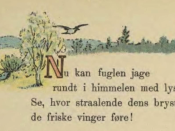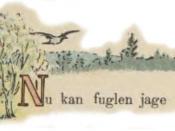"Elegy for Drowned Children" is a poem written by Australian poet Bruce Dawe in the 1960's. An elegy is a sad poem or song that laments the death of a person. This poem implies that the persona had a close relationship with someone who had drowned or loss their child to drowning.
This poem has five four-lined stanzas. The first and last lines rhyme with each other while the middle two lines rhyme with each other. This creates a song like quality to the poem. The first three stanzas of the poem end with questions. This structures the idea of parents mourning with unanswered questions. The last two stanzas are enjambed. This gives the effect of the parents realizing there's no point in questioning their deaths but to be at peace with it. This poem is giving some consolation to the people who have lost loved ones, mainly children, to drowning.
The poem frequently refers to Greek mythology. There is an 'old king' whom is assumed to be the Greek god of the ocean Poseidon, who resides in the sea and takes care of drowned children. In this poem, the old king takes a 'shining haul' of children with his 'sure' net. This suggests that many children have been taken by him. The use of the word 'sure' implies that no one is really safe from him and that it is fated to happen. It could also mean humans cannot prevent nor control the ocean. However, the persona describes his care as 'solicitous' and 'tender'. This expresses that the king is kind and caring to the children. In an effort to ease the parents' distress, the use of mythology conveys the notion that the children are not just gone but instead they are being taken care of in a...


